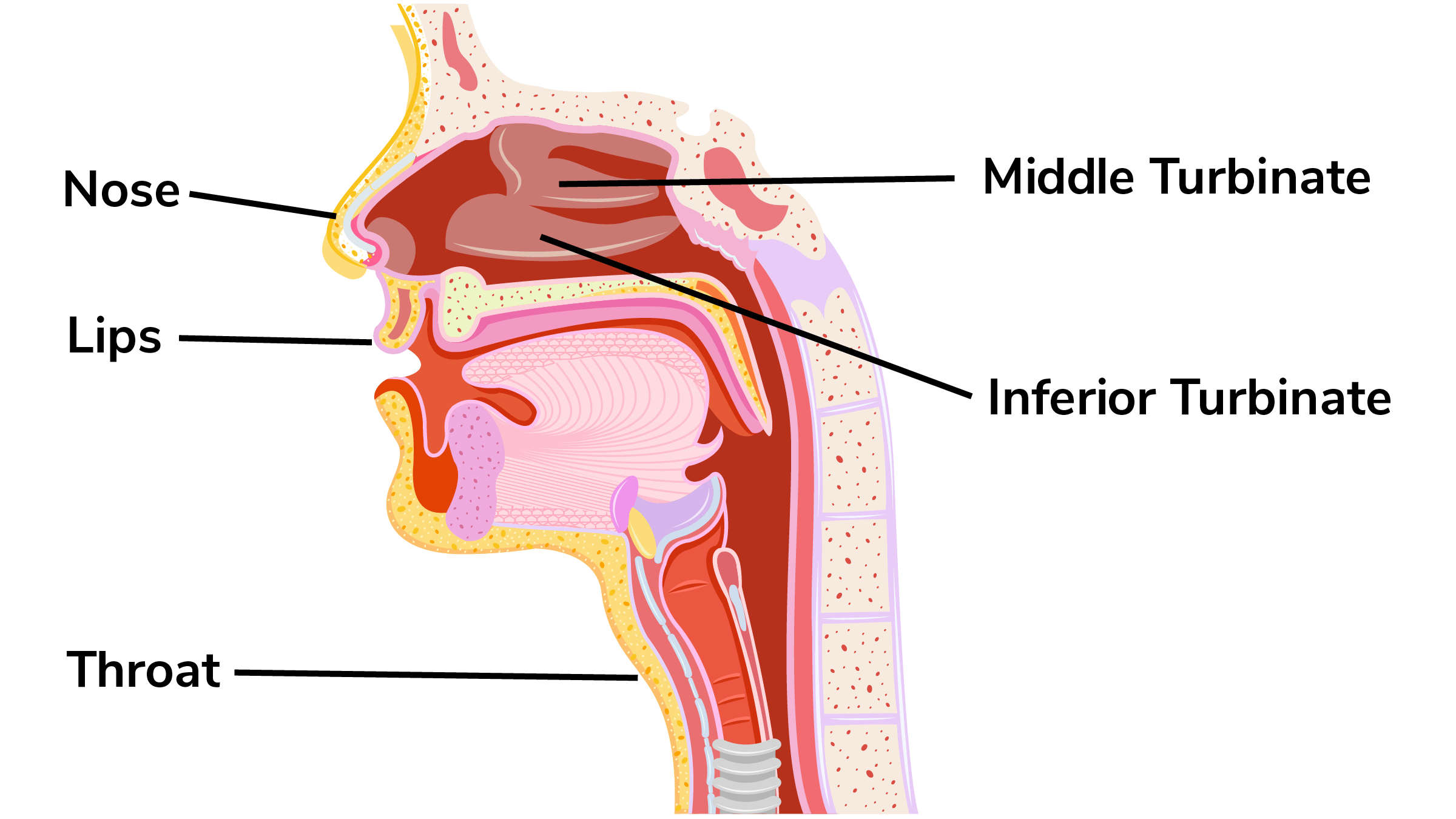
In addition to the long list of common pregnancy concerns, many have added “pregnancy nose” to the list. Viral TikTok videos showing women before, during and after pregnancy have raised awareness about this pregnancy symptom.
What is pregnancy nose?
Some people experience swelling in the nose due to pregnancy hormone changes. Estrogen dilates blood vessels, causing swelling around the entire body — including the nose. This can lead to a broadening, or bulbosity, at the tip of the nose. Pregnant people with more nasal soft tissue may experience more swelling simply because they have more space for blood flow.
The lining of your nose differs from other parts of the skin because it contains mucus-producing glands. Your nose also has a finger-like structure that projects from the side, called the inferior turbinate. These are made of bone covered by erectile soft tissue that heats and humidifies the air and senses airflow. This tissue can swell as it fills with more blood than usual during pregnancy
When they’re full of blood, the mucus glands may produce more mucus, resulting in more congestion and drainage.

How common is pregnancy nose, and will it go away?
Pregnancy nose has gained more awareness in the age of selfies and social media. For most patients, swelling reduces within a few weeks after delivery.
Cause and symptoms of pregnancy rhinitis
Pregnancy rhinitis is more common and irritating than pregnancy nose for most. Rhinitis occurs when additional blood flow causes thickening of the nasal lining. If you’ve ever felt allergic while pregnant, this is likely because of pregnancy rhinitis.
Symptoms of pregnancy rhinitis include the following:
- Congestion
- Sneezing
- Runny nose
- Post-nasal drip
Rhinitis can occur during any trimester. It can last two to six weeks and typically goes away within a few weeks after giving birth.
While a runny nose is certainly annoying, it can be beneficial. Mucus is one of the body’s mechanisms for immune defense, so a runny nose can help clear away irritants and pathogens.
How to treat pregnancy rhinitis
Some nasal sprays are safe to use during pregnancy. The FDA categorizes medications based on how much evidence exists to support pregnant people’s use of the drug. While no nasal sprays are in the strongest “A” level of safety evidence, several are in the “B” category. If you’re experiencing rhinitis symptoms, speak to your Ob/Gyn about what nasal spray is right for you.
Talk to your doctor, too, before taking oral decongestants, especially if you plan to take medication daily.
Saline irrigations, such as a neti pot, that rinse debris or mucus from your nasal cavity, can be helpful. Be sure to use distilled water with the salt packet to avoid contaminants in tap or well water.
During the day, getting up and moving around can help with decongestion. Sleeping slightly elevated helps at night.
Other ear, nose and throat issues during pregnancy
Besides pregnancy nose and rhinitis, the following are other ways that pregnancy can affect the ear, nose and throat.
Ear irritation
Feeling stuffy during pregnancy or at any time can cause ear symptoms. If you experience ear popping, crackling or a sensation of fullness, this is because the eustachian tube connects the ear to the throat in the same area where your nose meets your throat. When you yawn, that tube opens.
Nosebleeds
Nosebleeds are common during pregnancy for the same reason that pregnancy nose occurs – increased blood flow to the area. For nosebleeds, hold your head forward while placing pressure on both sides of the soft part of your nose for at least 10 minutes (without peeking).
Benign nose tumors
In rare circumstances, frequent nosebleeds may be a sign of a benign nasal tumor. These can occur due to hormonal changes during pregnancy. Not every nosebleed is a sign of tumors made of blood vessels, but all benign nose tumors cause nosebleeds. It’s a good idea to be evaluated by an ENT if you experience nosebleeds and also feel some nasal blockage.
Salient smell
If your partner’s breath in the morning or a whiff of raw meat is suddenly unbearable, it’s most likely because of hormonal changes to your sense of smell. Some pregnant people’s process smells differently so that something that used to have no response suddenly smells foul. This often improves after delivery.
When to see your doctor
Speak to your Ob/Gyn if any ear, nose and throat symptoms are disrupting your ability to perform daily activities.

Stop living with sinus infections
Ohio State's ENT team provides comprehensive care backed by one of the nation's leading academic health centers.
Expert care starts here




